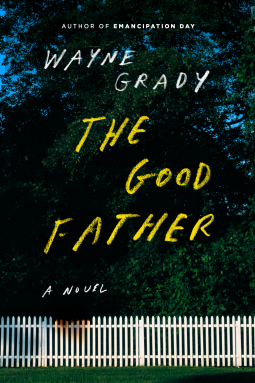4 Stars
Having read and enjoyed Wayne Grady’s previous novels (Emancipation Day and Up From Freedom), I certainly wanted to read his latest. It did not disappoint.
The book focuses on a father-daughter relationship. Harry Bowes moves to Toronto from the small town of White Falls (“on the Madawaska River, between Ottawa and Peterborough”) to take a teaching job; he leaves behind his wife and ten-year-old daughter Daphne. He never lives in White Falls again because his marriage ends in divorce and he eventually remarries. He remains in contact with Daphne, visiting her and having her visit him, but their connection is eroded.
Daphne feels abandoned by her father, and the loving young girl is replaced by a hostile young woman who seems determined to totally destroy her relationship with Harry; she physically distances herself from him and limits contact with him. Then she abandons her studies and begins self-medicating with drugs and alcohol. A crisis brings them together physically, but will they be able to bridge the emotional distance?
I found myself frustrated with Harry. He is supposed to be the adult, but he does not behave as one. He doesn’t give much thought to how his move from home will affect his daughter. He doesn’t even tell her that he’s leaving; he just assumes she will be alright: “The relationship and trust and companionship he had built up with her over the years would ripen.” Later, when it’s obvious that Daphne is not doing well, he has to be pushed to make more than a cursory effort to contact her. Rather than reach out to find out exactly what Daphne is doing, he imagines best-case scenarios, “picturing her in a bright, cheerful apartment, with hardwood floors and tall windows that let in plenty of sunlight. . . . Food in the refrigerator, healthful food, smoked salmon, Boston lettuce, and a jar of real capers . . . and a small wine rack with bottles of a clear Okanagan sauvignon blanc.” Harry is so right when he comments on his passivity: “’I think I may just have been doing what was easiest for me.’”
I sometimes found myself equally frustrated with Daphne. Her behaviour as a child is understandable; she feels abandoned by her father with whom she had a close bond. She looks for affection and attention elsewhere. As a young adult, however, she makes choices that seem to be intended to punish her father because she cannot forgive him, even when those same choices destroy her own life. She is so focused on what she sees as her father’s betrayal that she continues to blame him and wallow in self-pity when, in fact, she bears responsibility for her actions. It takes a long time for her to admit that maybe her father’s leaving was “more a mistake than a premeditated desertion.”
The novel provides a dual perspective; the reader sees both Harry and Daphne’s points of view. It is so realistic to read Harry saying, “’Daphne isn’t always there. She’s always somewhere else’” and later, when he argues, “’I was always there for you’” have Daphne counter with “’Always there, never here.’” In Daphne’s chapters, when she is facing a personal crisis and resorts to drugs again and again, she refers to herself in the second person. This approach is somewhat disorienting but very effectively shows the chaos in her life.
There are two aspects which I particularly enjoyed. As a former English teacher, I loved the many literary allusions. Shakespeare is quoted often, but W. B. Yeats and Walter Raleigh and Matt Cohen and Robertson Davies and Edna O’Brien and Siri Hustvedt and others are referenced. Though White Falls is fictional, I grew up in the Madawaska Valley so references to “the Madawaska Valley accent” and “Madawaska Grunge” made me smile, as did mentions of Pembroke and Foymount.
The father-daughter
relationship is portrayed so realistically that readers who are fathers or daughters
will be inspired to examine their own relationships. The novel reminds us that love requires “So
much forgiveness . . . so much overlooking of hurt, so much emphasis on
intentionality” and that love has many shapes.
Such a though-provoking book should be read.
Note: I received a digital galley from the publisher via NetGalley.

No comments:
Post a Comment